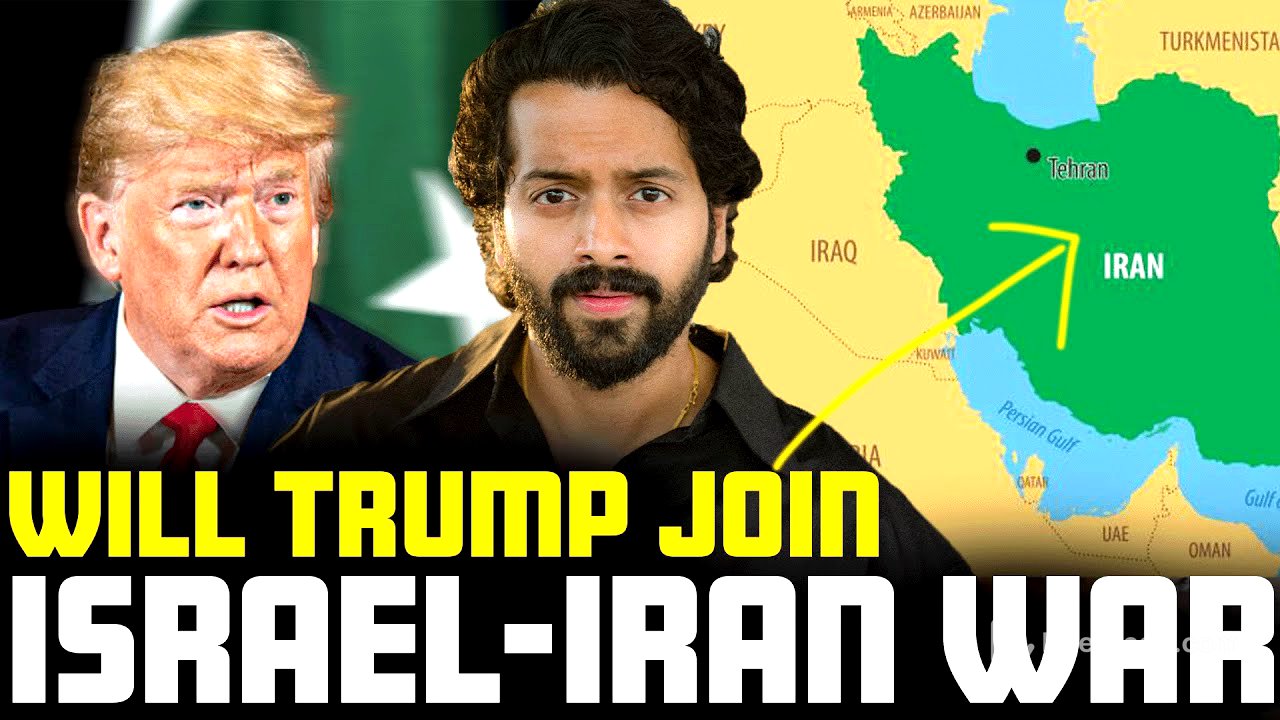TLDR;
This video discusses the potential outcomes of the escalating tensions between Iran and Israel, with a focus on the possible roles of the United States, China, and India. It analyzes five different scenarios, ranging from Iran surrendering its nuclear ambitions to a full-scale US intervention, and examines how each outcome could reshape the geopolitical landscape of the Middle East and beyond. The video also touches upon the Abrahamic Accords, the implications for various countries, and India's strategic considerations in this complex situation.
- Five potential outcomes of the Iran-Israel conflict are analyzed.
- The role of the United States, China, and India in each scenario is examined.
- The impact on the Abrahamic Accords and the broader Middle Eastern order is discussed.
Introduction [0:00]
The speaker introduces the topic of the escalating tensions between Israel and Iran, emphasizing the potential for significant global impact. He mentions Asim Munir's statements regarding Pakistan's airspace and Balochistan, highlighting the complexities of the situation. The speaker also references a Fox News anchor's comments about the possibility of tactical nuclear weapons being used, underscoring the gravity of the situation. The speaker aims to analyze the situation through an Indian lens, discussing how the world order could change depending on the actions of the US, Israel, and Iran. He promises to simplify the complex issues for easy understanding.
Understanding the Abrahamic Accords [2:34]
The Abrahamic Accords, initiated in 2020 with Trump's involvement, aim to foster peace in the Middle East, particularly between Israel and its neighbors. Originally signed by Israel, the UAE, and Bahrain, with Sudan joining later, the inclusion of Saudi Arabia is crucial due to its influence and power. These accords connect countries with Abrahamic religions: Judaism, Christianity, and Islam. Joe Biden's efforts to bring Saudi Arabia into the accords have been unsuccessful. The outcome of the current conflict will determine which countries join or withdraw from the Abrahamic Accords, significantly impacting Middle East peace.
Outcome 1: Iran Surrenders [4:16]
In the first scenario, Iran gives up its nuclear ambitions, fearing US intervention and Israeli attacks. This does not necessarily mean regime change, but rather Iran handing over control of its nuclear facilities, like the Fordo site, to the US. While unlikely due to Iranian pride, this outcome would lead to Netanyahu becoming a legend and victory rallies in the US and Israel. Trump would take credit for stopping the war, potentially boosting the Abrahamic Accords and leading to more countries joining. China would be the biggest loser, while India could benefit from cheaper oil and the Chabahar Port.
Outcome 2: America Raises Its Hands [6:51]
The second outcome involves America opting not to intervene, even if requested by Israel. Without US support, Israel would not aggressively pursue military action, and Iran's nuclear program would continue. This scenario results in no clear winner, but Iran gains a slight advantage as it continues its nuclear development. The US would be seen as weak, potentially strengthening groups like the Houthis, Hezbollah, and Hamas. China and Russia would celebrate, while India could maintain its economic ties with Iran and avoid major losses. However, the Quad alliance could weaken due to the US's perceived failure.
Outcome 3: Israel Wins Without US Intervention [9:37]
In the third scenario, the Israel-Iran war continues, with Israel ultimately winning without direct US intervention. Israel would become a dominant force in the Middle East, leading many countries to seek alliances with it. Netanyahu would be celebrated, but Iran would become a wounded lion, seeking revenge through groups like Hezbollah. The US would be seen as a country that raised its hands, with Trump claiming he won the war without spending a dollar. China would suffer significant losses, while Russia would position itself as a post-crisis recovery partner for Iran. India would maintain strategic silence, deepening ties with Israel while potentially alienating Iran.
Outcome 4: Israel Loses [12:13]
The fourth potential outcome is that Israel attacks Iran but fails, resulting in a loss for Israel. This scenario would shatter the perception of Israel's invincibility and could lead to the collapse of Netanyahu's government. Many countries would celebrate Israel's defeat, while the US would face global embarrassment. The Abrahamic Accords would be undermined, and countries in the Gulf would question their alliances. China would benefit from a weakened Israel and strengthened Iran, while Russia would also gain influence. India would suffer losses due to its strong defense ties with Israel and the uncertainty for Indian experts in Gulf countries.
Outcome 5: America Enters the War [14:19]
The final and most significant outcome involves America's direct entry into the war. This would guarantee the closure of Iran's regime or its nuclear facilities. If the regime changes, it could result in either the Islamic Republic of Iran 2.0 or the return of Reza Pahlavi, the Shah's son, who is seen as an American puppet. The speaker questions whether a regime change would be beneficial for India, considering past activities and the potential for increased hostility from the US. Israel would likely welcome a regime change, while China would suffer losses.
Conclusion and Community Engagement [16:35]
The speaker concludes by encouraging viewers to share their opinions on which outcome is most probable and if there are any other potential scenarios. He emphasizes the importance of community discussion and announces a multiple-choice question related to Iran's nuclear activities under the JCPOA, inviting viewers to answer in the comments. He promotes his Instagram and other channels for more content and expresses gratitude for the viewers' support and watch time. The speaker also provides links to related videos for further viewing.









